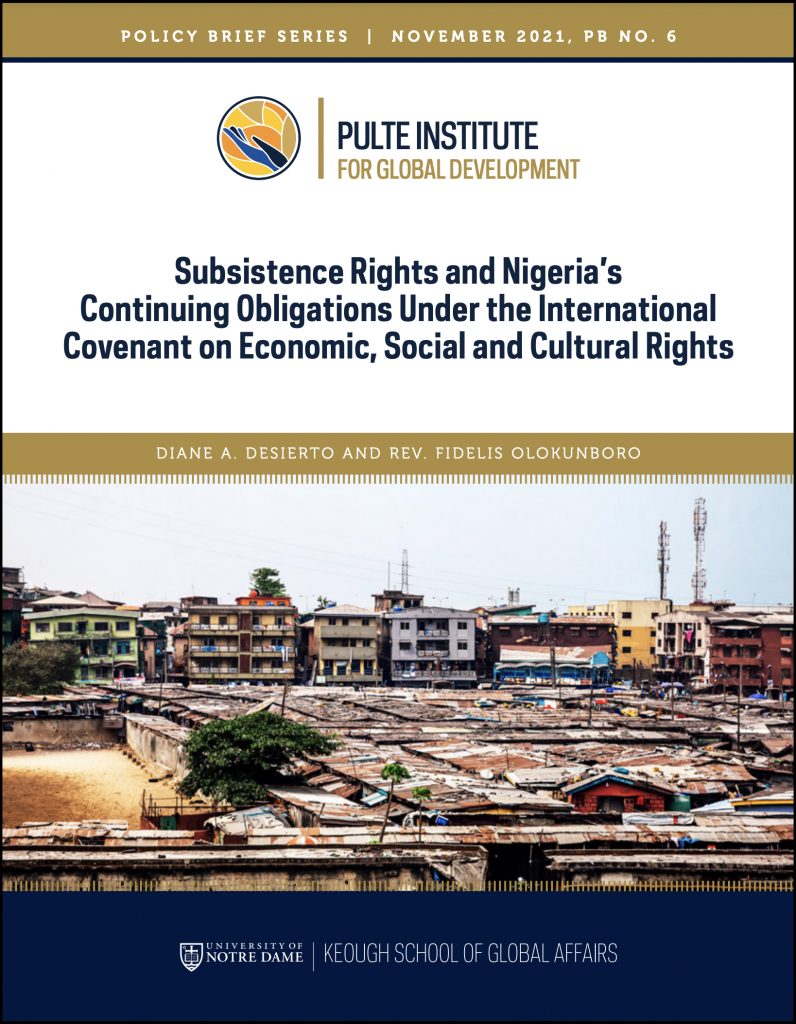Subsistence Rights and Nigeria’s Continuing Obligations under the International Covenant on Economic, Social and Cultural Rights
Authors: Diane Desierto, Fidelis Olokunboro
Publication info: Pulte Institute for Global Development, Keough School of Global Affairs, November 2021
Full text: Read this brief at curate.nd.edu
Abstract
It is a continuing paradox in 2021 that Nigeria is a country of vast natural resources and energy reserves, Africa’s largest oil producer, and a powerful member of the Organization of Petroleum Exporting Countries (OPEC), yet poverty and inequality remain extremely rampant. Forty percent of the total population — almost 83 million people — live below the country’s poverty line. By any measure, this is a crisis for the economic, social, and cultural rights of Nigerians, and the counterpart legal duties of the Government of the Federal Republic of Nigeria, under its binding commitments in the International Covenant on Economic, Social, and Cultural Rights (ICESCR). Most importantly, the continued imperiling of human life in Nigeria is rooted in a moral pathology that has tolerated governance and social systems as unresponsive and unaccountable to Nigeria’s most vulnerable. In this policy brief, we argue that the success of any rights-based approach against poverty and inequality in Nigeria also hinges on engaging local parish communities in addressing the immoralities of corruption and systemic unaccountability
Recommended citation
Desierto, Diane, and Fidelis Olokunboro. Subsistence Rights and Nigeria’s Continuing Obligations under the International Covenant on Economic, Social and Cultural Rights. Notre Dame, In: Keough School of Global Affairs; Pulte Institute for Global Development, 2021. https://doi.org/10.7274/1n79h418m44
